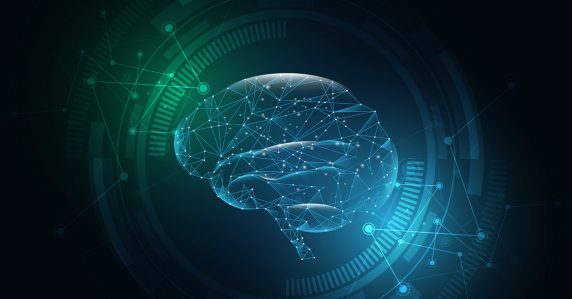Leveraging AI to Enhance Employee Experience: A Full Guide

Implementing AI for employee experience aligns current technology trends with ever-changing workplace dynamics and employee expectations. It also aligns with research that suggests employees welcome its use, particularly when automating routine and monotonous tasks that don’t support their work goals and aspirations.
Introduction to AI in the Workplace
AI’s incorporation into the workplace is transforming how businesses operate and manage their human resources. It is being used to:
- Streamline operations.
- Facilitate data-driven decisions.
- Automate administrative tasks.
- Provide insightful analytics for strategic planning.
- Improve employee recruitment, onboarding, development, and retention.
As a result, the technology is enhancing the employee experience, creating more engaging and satisfying work environments that value innovation and personal growth. It also naturally leads to improved customer experiences. That’s because when employees feel valued and supported, they’re more likely to convey enthusiasm and dedication in their customer and client interactions, which, in turn, fosters loyalty and drives business success. In other words, enhanced employee experiences translate into higher quality service and customer satisfaction, creating a virtuous cycle that benefits the entire organization.
For instance, since its inception in 1961, The Tel Aviv Sourasky Medical Center has seen a steady growth in its number of facilities, staff members, and patients. When it became apparent that the Center’s existing contact center had become cumbersome and inefficient, it turned to KMS Lighthouse to help it address patient and customer dissatisfaction with its support services. Integrating our knowledge management platform with its existing systems helped provide faster and more accurate information delivery during agent-customer interactions, resulting in a 40% increase in patient satisfaction.
AI-Driven Recruitment: Revolutionizing Talent Acquisition
Traditional talent recruitment relies on time-consuming human resume screening and personal interviews to identify potential candidates. The process is often subject to human bias, limiting a company’s ability to efficiently scale talent acquisition and accurately match job seekers with the right opportunities.
AI-driven talent acquisition makes it easy to sift through vast volumes of applicant data to pinpoint the most suitable candidates for various positions.
- Advanced tools quickly analyze resumes, assess skills, and can even predict a candidate’s job performance and cultural fit.
- AI-powered chatbots can engage with potential hires, answer queries, and schedule interviews, enhancing the candidate experience.
- Predictive analytics forecast staffing needs, enabling proactive recruitment strategies.
This shift toward AI-driven recruitment is about much more than filling vacancies quickly; it’s also about finding the most suitable candidate—someone who aligns with a business’s goals and values while helping build a strong foundation for organizational success.
Optimizing Employee Onboarding with AI
Automating paperwork and employee orientation allows HR teams to focus on more meaningful interactions with new hires. AI-driven platforms:
- Create tailored learning experiences that reflect an individual’s current role, prior experience, and pace of learning, enhancing the effectiveness of the training process.
- Monitor progression and provide feedback, ensuring newcomers are well-prepared from day one.
- Help build internal connections, recommending mentors and facilitating introductions to helpful colleagues, promoting a welcoming and inclusive atmosphere.
Implementing AI in these early stages streamlines administrative procedures, enriches a new employee’s initial experience, and lays a foundation for their career advancement with the organization.
AI in Employee Development and Retention
What if you could predict which employees were most likely to leave your company? Or which ones were more susceptible to burnout? Employing AI in team member engagement and retention strategies helps companies minimize talent loss and use behavioral analytics software to identify job fatigue among key talent.
Along with offering insight into employee turnover, advanced technologies can also:
- Create personalized career development plans.
- Identify skill gaps.
- Provide tailored learning opportunities.
- Monitor and analyze employee satisfaction and engagement levels.
AI-enhanced headcount tools help companies monitor the composition, performance, and efficiency of their employees and teams. They go beyond tracking the number of employees, providing insights into turnover trends, departmental staffing needs, and other critical workforce dynamics and metrics. The collected data is invaluable in foretelling which employees are at risk of leaving and understanding the underlying factors influencing job satisfaction and engagement.
From a proactive stance, AI-driven analytics can be instrumental in succession planning, identifying potential leaders within the organization, and preparing key talent for future roles. Overall, this shift toward a more strategic, personalized, and data-driven approach in managing an organization’s most valuable asset – its people—can ensure a dynamic, committed, and skilled workforce ready to face the challenges of the future.
Future Trends in The AI-Driven Workplace
Looking ahead, there’s little doubt AI will continue to reshape the workplace. Promising trends include:
- Natural Language Processing (NLP). NLP advancements will enable AI systems to understand and interpret human language with even greater accuracy, enhancing AI-employee communications, allowing for more intuitive interactions, and automating more complex tasks like drafting emails or generating reports.
- Predictive analytics. AI will increasingly use predictive analytics to forecast future trends and employee behavior. Based on collected data, it could personalize learning and development initiatives, suggest ways to optimize team dynamics, and mitigate conflicts.
- Augmented Reality (AR) and Virtual Reality (VR). Combining these cutting-edge technologies with AI will revolutionize employee training and development. Employees could participate in immersive simulations for skill-building, safety training, or even experience different workplace scenarios, leading to more effective learning outcomes.
- AI-powered wellness programs. Wearable devices and apps will track health metrics, while AI algorithms will analyze collected data to provide personalized wellness recommendations, helping to reduce employee stress and improve overall health.
- Ethical AI. As AI becomes more prevalent, there will be a greater focus on developing ethical systems that are transparent, fair, and unbiased, helping to maintain trust and ensuring AI-driven decisions are made in an employee’s best interests.
These and other trends are exciting glimpses into a future workplace that will be more connected, personalized, and data-driven, with AI playing a central role in enhancing the employee experience.
Listen to the Experts: Your Employees
As what makes an employee experience more enjoyable continues to evolve beyond traditional measures of job satisfaction, keeping up with current employee trends is necessary for achieving organizational goals.
Organizations that want to use AI to enhance employee experience should begin by asking employees what matters most to them. Input and feedback from your workforce can deliver valuable insights into the specific areas where employees think AI will make a meaningful difference in their jobs and career aspirations. Surveys, focus groups, and suggestion platforms make it easy to gather ideas on how AI can streamline workflows, improve communication, or support personal and professional development.
Engaging employees in the AI conversation ensures the technology aligns with their needs and preferences while fostering a sense of ownership and enthusiasm for technological changes. Download our eBook, “A Benchmark Guide for Call Center Automation,” to discover just one way your organization can enhance employee experience by helping agents perform their work more efficiently and confidently.




